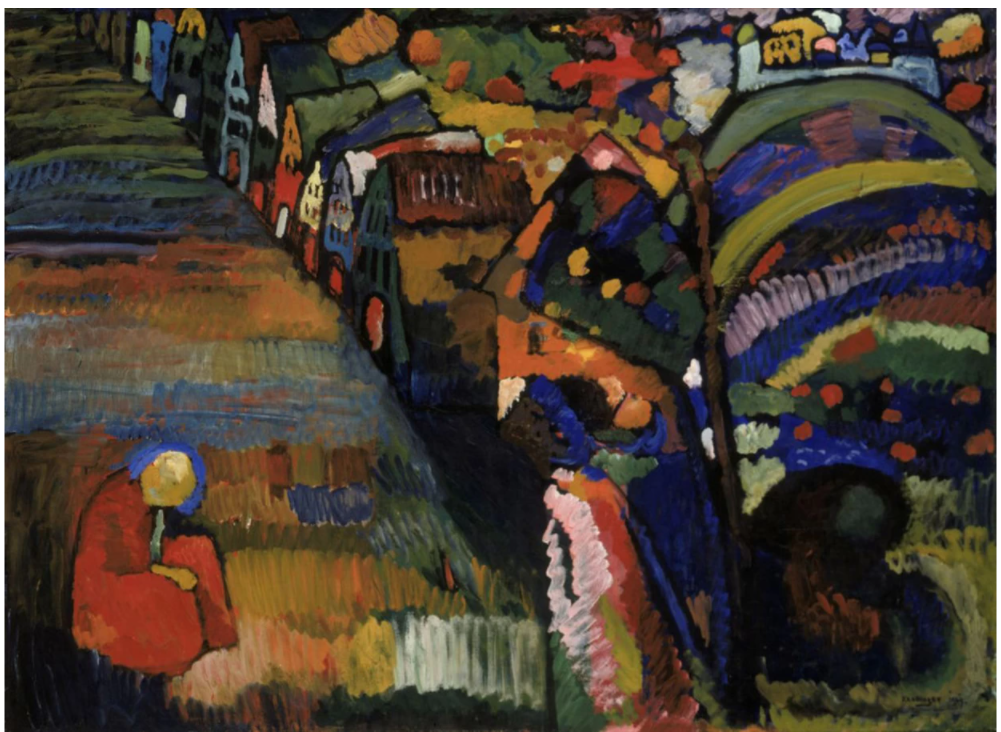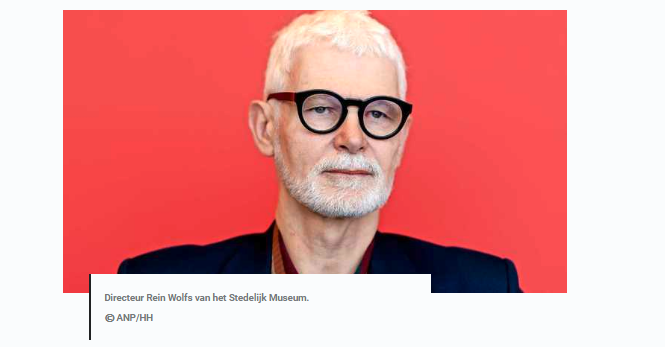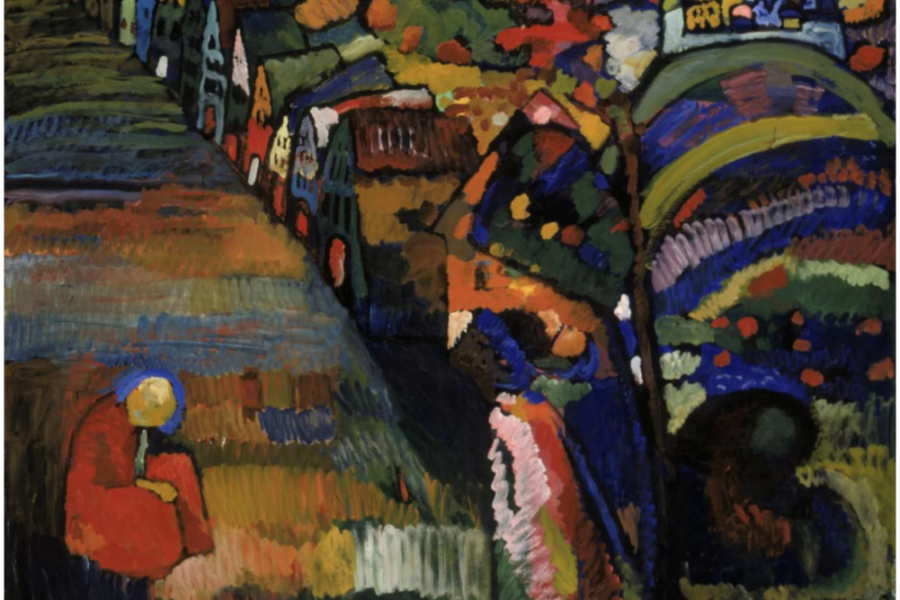[THIS IS AN ENGLISH TRANSLATION OF THE ORIGINAL DUTCH ARTICLE “Joodse erfgenamen versus Stedelijk Museum: ruzie over roofkunst” PUBLISHED ON THE DE TELEGRAAF WEBSITE ON OCTOBER 29, 2020] (https://www.telegraaf.nl/entertainment/742590633/joodse-erfgenamen-versus-stedelijk-museum-ruzie-over-roofkunst)
By ELINE VERBURG 29 Oct. 2020 in CULTURE AMSTERDAM – Is the painting Bild mit Häuser (1909) by the Russian artist Wassily Kandinsky looted art, or was it fairly acquired by the municipality of Amsterdam at an auction in October 1940? The heirs of the former owners, the Jewish couple Robert Lewenstein and Irma Klein, have long been trying to get a satisfactory answer to this question. They could not agree with the binding recommendation of the Restitutions Committee Ekkart from 2018, which was rejected in favor of the municipality and the Stedelijk Museum.

Wassily Kandinsky, Bild mit Häusern, 1909
Ⓒ STEDELIJK MUSEUM
The Restitutions Committee, set up to be able to give an independent opinion on art looted during the war, ruled in 2018 that the municipality of Amsterdam and the Stedelijk Museum did not have to return the disputed artwork. Bild mit Häusern was acquired at an auction in Amsterdam for 160 guilders (now converted around 1600 euros) .
The Restitutions Committee, set up to be able to give an independent opinion on art looted during the war, ruled in 2018 that the municipality of Amsterdam and the Stedelijk Museum did not have to return the disputed artwork. Bild mit Häusern was acquired at an auction in Amsterdam for 160 guilders (now converted around 1600 euros) .
‘Voluntarily put up for auction’
According to the committee, it is plausible that the Lewensteins had volunteered it there – they were in financial distress, he had been fired from the sewing machine factory – and the amount of 160 guilders for that wartime is also not that unusual. The heirs – two Americans and one Dutchman, are not convinced of that and that is why the case came to the Amsterdam court on Thursday. They want the advice to be withdrawn.
Lawyer Alex Hagedorn argued on behalf of the family that the Stedelijk Museum acted ‘in bad faith’. “That amount of 160 guilders is certainly exceptionally low. Lewestein’s father bought it twenty years earlier for 500 guilders. It is impossible that the Nazis did not play a decisive role in this. ” The canvas in question, a key piece in the work of the abstract Kandinsdky, is said to be worth around 20 million today.
‘Both parties have committed themselves’
Mr. Paul Loeb, counsel for the Stedelijk Museum and the City of Amsterdam, stated that “both parties have committed themselves to the final verdict, even if it turns out to be unpleasant for the family. This lawsuit does not shed any other light on the matter. The purchase price was determined at the auction. The highest bid is the market value at that time. ”
‘Appearance of partiality of members of the Restitutions Committee’
Mr. Simon van der Sluijs, Hagedorn’s colleague, came up with different findings. Of the members of the Restitutions Committee, chaired by Fred Hammerstein, at least three are said to have (had) business ties with the Stedelijk Museum. “They should have changed. Partiality and conflict of interest are contrary to the principles of the Ekkart Committee. ” These would include committee member Els Swaab, who was chairman of the museum’s Business Club, with some 50 companies as a member.
The opposing party denied this appearance of bias: “Experts should be on such a committee,” said Loeb. “Then it makes sense that people have links with museums. The advice is comprehensible and comprehensively formulated and drawn up after extensive research by professional researchers. ”

Rein Wolfs, director of the Stedelijk Museum since last year, was also present at the meeting. “I can only judge that the museum is transparent and careful and very aware of its task and responsibility. I would also like to emphasize that the amount of 160 guilders was not abnormal at the time. ” Although the chairman of the court was still wondering whether a compromise could be found, this turned out to be not an option for both parties at the moment.
Decree December 16

